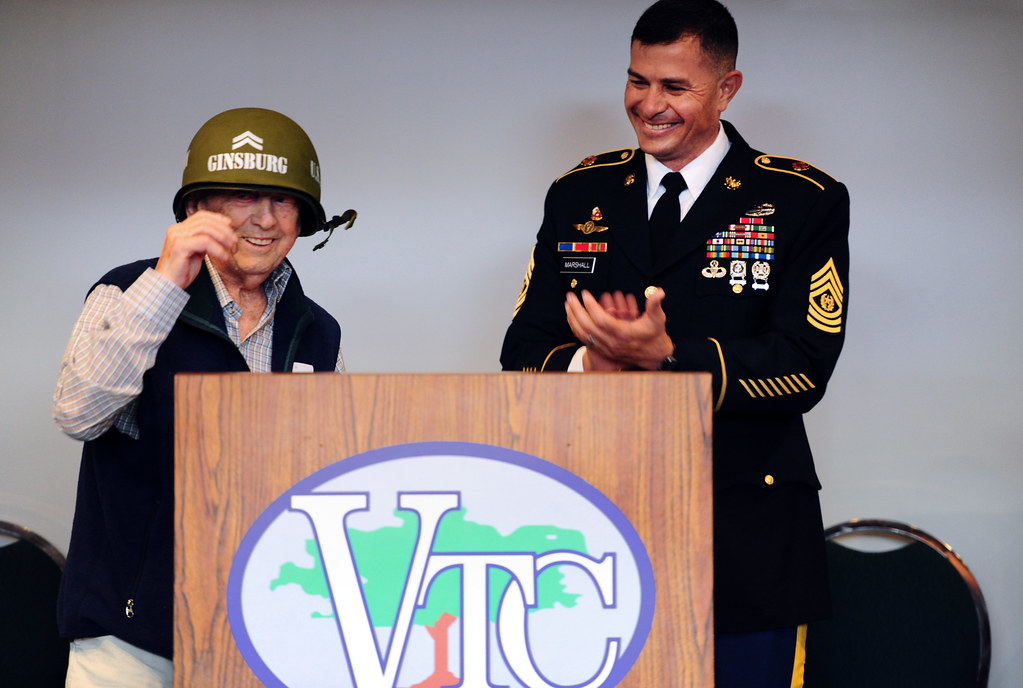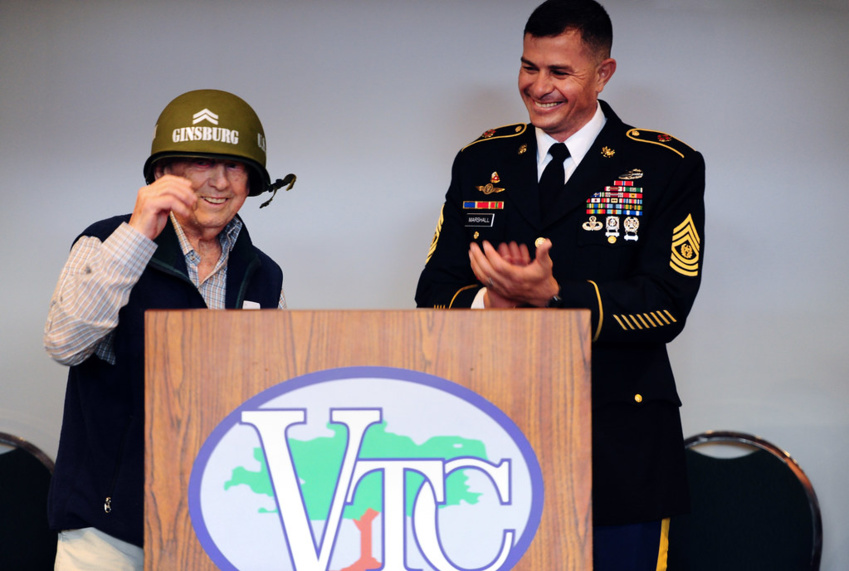Each year, around 250,000 members of the armed forces conclude their military service, transitioning into civilian life and preparing to re-enter the U.S. workforce for the next phase of their careers. This group comprises highly skilled and team-oriented individuals, boasting world-class training in specialized fields, eager to apply their unique experiences to new roles in the private sector.
However, without access to reintegration education and proper preparation for this significant life change, the shift from a military to civilian role can prove to be challenging. Ezell Tornes, a 25-year Army and Army National Guard veteran, now employed as a material management supervisor for Guardian Industries in DeWitt, Iowa, faced a substantial hurdle in navigating past human resources managers during his transition. He expressed the difficulty of not receiving responses from companies, emphasizing the need for effective communication between military skills and corporate expectations.
Casey Olin, a 14-year veteran of the United States Air Force and currently an operations manager for GP Harmon Recycling, found translating military skills into civilian terms to be a formidable challenge. Reflecting on the experience, Olin acknowledged the need for mentorship and regretted not actively seeking guidance during the transition.
Shannon Vivar, a five-year Marine Corps veteran and Director of Risk Optimization with Koch Industries, highlighted the importance of utilizing veteran organizations and resources to comprehend comparative advantages and contributions to the workforce. Looking back, Vivar expressed a desire to have sought mentorship and tapped into available resources for a smoother transition.
The experiences of these veterans underscore the importance of providing adequate support, mentorship, and resources for military personnel transitioning to civilian life. Recognizing the value these individuals bring to the workforce, Koch Industries proudly employs thousands of military veterans across its companies, showcasing the positive impact of their service on a daily basis.
In the current year, we have successfully brought veterans on board in a diverse range of 20 different career fields. John Buckley, a retired US Army Colonel who assumed the role of Military Relations Manager for Koch Industries in 2014, has been actively engaged in facilitating a smoother transition for veterans such as Vivar, Tornes, and Owen. Under his leadership, Koch Industries has witnessed a nearly fourfold increase in its veteran workforce, earning the Military Friendly silver status in 2018.
The Military Friendly designation holds significance for Buckley, as it acknowledges the alignment between Koch's Market-Based Management (MBM) philosophy and the values demonstrated by soldiers in the military. This alignment fosters a cultural fit between Koch and veterans, creating a mutually beneficial relationship. According to Buckley, Koch initially focused on seven career fields like business and engineering. However, this year alone, they have expanded their hiring focus to include veterans across 20 different career fields, connecting them to MBM training and mentorship programs.
Despite these achievements, Buckley remains committed to challenging the status quo and exploring ways to elevate the veteran hiring process further. He emphasizes the importance of not overlooking high-quality candidates and continues to explore innovative strategies. Koch's comprehensive approach to veteran recruiting and retention involves not only training and mentorship but also incorporates job training opportunities such as Hiring Our Heroes and Heroes Make America, along with online resources for transitioning soldiers.
Beyond Koch, Buckley extends his expertise to collaborate with other major businesses like GM, Textron, and J.P. Morgan, sharing best practices in veteran hiring and retention. His commitment to helping veterans extends beyond company boundaries, exemplified by his partnership with other organizations and his willingness to offer guidance to veterans seeking advice.
Tony Leiding, a former U.S. Army captain and Blackhawk helicopter pilot with eight years of active duty, illustrates the impact of Buckley's support. Upon leaving the service in 2015 and seeking opportunities for his MBA, Leiding connected with Buckley through networking and informational interviews, highlighting the broader positive influence of Buckley's efforts in the veteran community.
I've been able to share many of the insights and advice he provided with friends who, like me, have transitioned out of the military.
Tony Leiding, Director of Operations and a former US Army Captain, reflected on the valuable guidance he received. He sent Buckley his resume, thinking it was strong, but Buckley's candid conversation highlighted the need to "civilianize" it—clearly translating military experience into civilian terms. Although the conversation was challenging, it was exactly what Leiding needed to hear.
Taking Buckley's feedback to heart, Leiding applied for various positions at Koch while simultaneously considering an opportunity from another ethanol company. The latter interviewed and hired him on the spot, and he has been with them since. Despite the new position, Leiding remains grateful for the guidance he received and continues to pass on the knowledge to others navigating the transition from military to civilian life.
"John's a wonderful guy, and he knows his stuff about transition," said Leiding. "His guidance to me was certainly invaluable, and I've been able to take a lot of the pointers and tips he shared with me and pay it forward by passing that knowledge along to friends who've also transitioned out of the military."
However, without access to reintegration education and proper preparation for this significant life change, the shift from a military to civilian role can prove to be challenging. Ezell Tornes, a 25-year Army and Army National Guard veteran, now employed as a material management supervisor for Guardian Industries in DeWitt, Iowa, faced a substantial hurdle in navigating past human resources managers during his transition. He expressed the difficulty of not receiving responses from companies, emphasizing the need for effective communication between military skills and corporate expectations.
Casey Olin, a 14-year veteran of the United States Air Force and currently an operations manager for GP Harmon Recycling, found translating military skills into civilian terms to be a formidable challenge. Reflecting on the experience, Olin acknowledged the need for mentorship and regretted not actively seeking guidance during the transition.
Shannon Vivar, a five-year Marine Corps veteran and Director of Risk Optimization with Koch Industries, highlighted the importance of utilizing veteran organizations and resources to comprehend comparative advantages and contributions to the workforce. Looking back, Vivar expressed a desire to have sought mentorship and tapped into available resources for a smoother transition.
The experiences of these veterans underscore the importance of providing adequate support, mentorship, and resources for military personnel transitioning to civilian life. Recognizing the value these individuals bring to the workforce, Koch Industries proudly employs thousands of military veterans across its companies, showcasing the positive impact of their service on a daily basis.
In the current year, we have successfully brought veterans on board in a diverse range of 20 different career fields. John Buckley, a retired US Army Colonel who assumed the role of Military Relations Manager for Koch Industries in 2014, has been actively engaged in facilitating a smoother transition for veterans such as Vivar, Tornes, and Owen. Under his leadership, Koch Industries has witnessed a nearly fourfold increase in its veteran workforce, earning the Military Friendly silver status in 2018.
The Military Friendly designation holds significance for Buckley, as it acknowledges the alignment between Koch's Market-Based Management (MBM) philosophy and the values demonstrated by soldiers in the military. This alignment fosters a cultural fit between Koch and veterans, creating a mutually beneficial relationship. According to Buckley, Koch initially focused on seven career fields like business and engineering. However, this year alone, they have expanded their hiring focus to include veterans across 20 different career fields, connecting them to MBM training and mentorship programs.
Despite these achievements, Buckley remains committed to challenging the status quo and exploring ways to elevate the veteran hiring process further. He emphasizes the importance of not overlooking high-quality candidates and continues to explore innovative strategies. Koch's comprehensive approach to veteran recruiting and retention involves not only training and mentorship but also incorporates job training opportunities such as Hiring Our Heroes and Heroes Make America, along with online resources for transitioning soldiers.
Beyond Koch, Buckley extends his expertise to collaborate with other major businesses like GM, Textron, and J.P. Morgan, sharing best practices in veteran hiring and retention. His commitment to helping veterans extends beyond company boundaries, exemplified by his partnership with other organizations and his willingness to offer guidance to veterans seeking advice.
Tony Leiding, a former U.S. Army captain and Blackhawk helicopter pilot with eight years of active duty, illustrates the impact of Buckley's support. Upon leaving the service in 2015 and seeking opportunities for his MBA, Leiding connected with Buckley through networking and informational interviews, highlighting the broader positive influence of Buckley's efforts in the veteran community.
I've been able to share many of the insights and advice he provided with friends who, like me, have transitioned out of the military.
Tony Leiding, Director of Operations and a former US Army Captain, reflected on the valuable guidance he received. He sent Buckley his resume, thinking it was strong, but Buckley's candid conversation highlighted the need to "civilianize" it—clearly translating military experience into civilian terms. Although the conversation was challenging, it was exactly what Leiding needed to hear.
Taking Buckley's feedback to heart, Leiding applied for various positions at Koch while simultaneously considering an opportunity from another ethanol company. The latter interviewed and hired him on the spot, and he has been with them since. Despite the new position, Leiding remains grateful for the guidance he received and continues to pass on the knowledge to others navigating the transition from military to civilian life.
"John's a wonderful guy, and he knows his stuff about transition," said Leiding. "His guidance to me was certainly invaluable, and I've been able to take a lot of the pointers and tips he shared with me and pay it forward by passing that knowledge along to friends who've also transitioned out of the military."


 Unlocking Success: Veteran Transitions and Career Growth with Koch Industries
Unlocking Success: Veteran Transitions and Career Growth with Koch Industries





 Companies
Companies